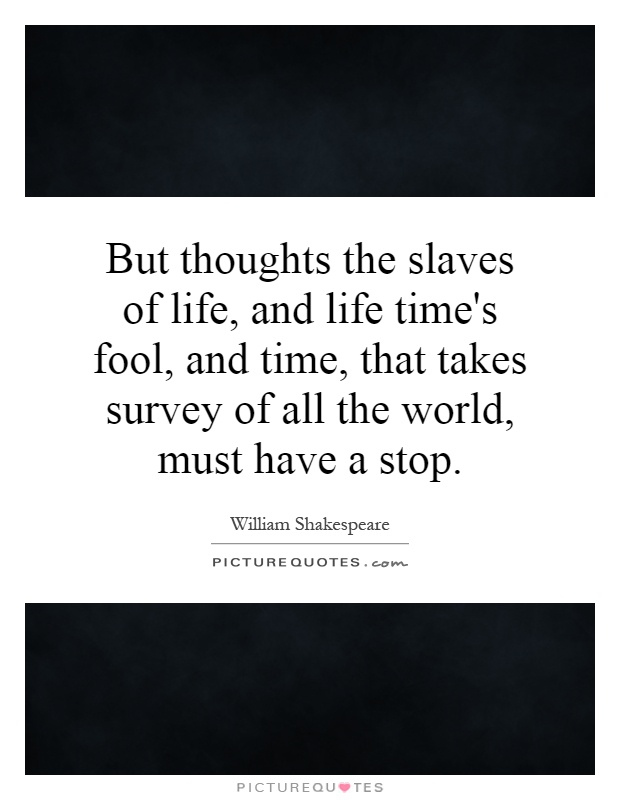But thoughts the slaves of life, and life time's fool, and time, that takes survey of all the world, must have a stop

But thoughts the slaves of life, and life time's fool, and time, that takes survey of all the world, must have a stop
In William Shakespeare's play "The Rape of Lucrece," the line "But thoughts the slaves of life, and life time's fool, and time, that takes survey of all the world, must have a stop" is a powerful reflection on the nature of human existence and the inevitability of mortality. This line is spoken by the character Lucrece as she contemplates the fleeting nature of life and the ultimate end that awaits us all.The idea that our thoughts are slaves to the demands of life speaks to the idea that we are often consumed by the daily struggles and responsibilities that come with living. We are constantly preoccupied with our obligations and desires, which can distract us from the bigger questions about the meaning and purpose of our existence. In this sense, our thoughts are enslaved by the mundane concerns of life, preventing us from truly reflecting on the deeper truths of our existence.
Similarly, the notion that life is time's fool suggests that we are at the mercy of time, which dictates the course of our lives and ultimately determines our fate. Time is portrayed as a powerful force that governs all aspects of the world, from the smallest moments to the grandest events. We are mere players in the grand scheme of time, subject to its whims and caprices.
The idea that time must have a stop is a reminder of the impermanence of life and the inevitability of death. No matter how powerful or influential we may be, we are all subject to the passage of time and the finality of our mortality. This realization can be both sobering and liberating, as it forces us to confront our own mortality and consider the legacy we will leave behind.
Overall, this line from "The Rape of Lucrece" encapsulates Shakespeare's profound insights into the human condition and the transient nature of life. It serves as a poignant reminder of the fragility of our existence and the importance of living with purpose and intention.












 Friendship Quotes
Friendship Quotes Love Quotes
Love Quotes Life Quotes
Life Quotes Funny Quotes
Funny Quotes Motivational Quotes
Motivational Quotes Inspirational Quotes
Inspirational Quotes